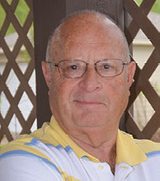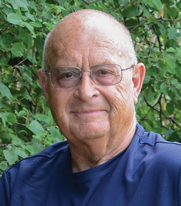Weak commodity prices continue to translate into a slump in farm equipment sales in the U.S. and Canada, and that has ag equipment dealers struggling to find ways to boost revenues and move a backlog of new and used equipment from their lots. Meanwhile, some equipment manufacturers are leaning on their dealer networks to “stock up” and place more orders — purchases the dealers worry cannot be sold profitably.
While 57% of 282 North American equipment dealers who responded to Ag Equipment Intelligence’s 2016 Dealer Business Outlook & Trends survey say they expect sales of new equipment to be “as good or better” than in 2015, only 17.2% expect an actual increase of 2% or more in the sales of new equipment.
To further add to the gloomy outlook, one of agriculture’s largest lenders, Rabobank, says the equipment sales slump may last into 2018. Reports indicate the number of farm machinery auctions is climbing after a 7-year hiatus — auctions that include a surprising amount of late-model pieces.
Despite the glut of new and lightly used iron in the inventory, dealers have some new tools and programs that can help add value to the stock on their lot. While dealers may feel pressure from OEMs to buy more inventory than they think the market will bear, those OEMs will likely be using their financing arms to make upgrading equipment more attractive to farmers.
Certified Pre-Owned
Over the past year John Deere, Case IH and AGCO have launched certified pre-owned equipment programs in an effort to emulate the success some automobile companies have enjoyed in providing a value-added “premium” used product to consumers.
Programs feature low-hour equipment, factory-trained specialist inspections, upgrades and repairs. Extended warranties are often available to target growers who want to upgrade to the latest technology for less than a “new” price — giving dealers another selling point to move good used equipment.
“The strategy is really about differentiating our used equipment in the market,” says Miles Keaton, manager of used equipment marketing at John Deere.
“We’re offering some of the newest, low-hour, field-proven equipment with a 170-200 point inspection program, plus the backing of a protection plan and a full year of JD-Link Connect,” he explains.
So far, Keaton says the majority of growers buying CPO equipment from Deere dealers are the traditional “used” customer, but he sees a significant number of “new” customers now considering CPO equipment.
Keaton says Deere actually has two programs, its new CPO offering and the well-known Power-Gard program that started 10 years ago.
“Our CPO program applies to all 7R, 8R and 9R tractors. To be in the program the machines have to be less than 3 years old and have less than 1,500 hours operating time. Combines and sprayers have to be 2 years old or less with 1,000 or fewer hours,” he explains. “The machines have a comprehensive 12-month, 500-hour warranty.”
With Power-Gard, tractors can be 10 years old or newer with 5,000 or fewer hours. Combines must be less than 6 years old and under 1,500 hours.
“These machines come with a limited engine and powertrain warranty and feature a 100-point inspection and a full fluid scan (oil analysis),” he explains.
So far, Keaton says dealers and their customers find the programs to be a positive experience.
At Case IH, which introduced its CPO program in March 2015, used equipment marketing manager Dave Henderson says the program creates a new tier of equipment for the consumer.
“Our CPO program creates another classification of equipment, which provides more benefits and purchase options for our customers,” he says. “In addition, Case IH’s CPO program provides late model equipment with many of the same customer peace of mind benefits of buying new.
“Our program requires combines have fewer than 1,500 hours and be less than 3 years old. Magnum and Steiger tractors must carry less than 2,000 engine hours. The combines undergo a 200-plus point inspection and the tractors a 100-plus point plan, all done by a certified Case IH-trained technician,” he says.
The Case IH program also requires fluid analysis testing before the machines can be certified.
Case IH CPO warranties are 12 months/2,500 hours for Steiger and Magnum tractors, and 12 months/2,000 hours for Axial Flow combines.
Henderson says the program is attracting dealers and customers alike.
Dealer Takeaways
|
“Both our dealers and customers must see the benefit of our CPO program for the program to work. To date we’ve had good success with dealer enrollment of equipment as well as retail sales of CPO units. The results tell me we’re meeting customer demand here,” he says.
The Case IH CPO program has been so successful that they added self-propelled Patriot sprayers to the CPO lineup in October 2015.
Shawn Moon, project manager for commercial strategic initiatives at AGCO says the new CPO program there provides a known level of quality for the customer and a “premium” used product tier for the dealer.
“Our CPO program provides a certain amount of risk reduction for our customers,” he explains. “Of course our dealers have to invest in having trained technicians to implement the program and in putting the equipment through the process. This requires labor and time, but the good news is our dealers are recouping that investment when they sell this new tier of equipment.”
AGCO’s program includes Challenger, Fendt and Massey Ferguson high horsepower tractors; Gleaner, Massey Ferguson and Challenger combines; Massey Ferguson and Challenger self-propelled windrowers; Massey Ferguson and Challenger large square balers; and Ro-Gator sprayers.
“Tractor eligibility for the CPO designation includes machines under 5 years old and with fewer than 3,000 hours,” Moon explains. “Combines must be under 3 years old with 750 or fewer separator hours, and windrowers, 3 years and 3,000 hours.”
AGCO’s CPO balers must be under 3 years old with fewer than 30,000 bales produced, while the sprayer program requires 4 years and 1,800 hours, he says.
Warranties for AGCO’s CPO program provide comprehensive coverage, run 12 months, and have a $250 deductible charge per incident.







